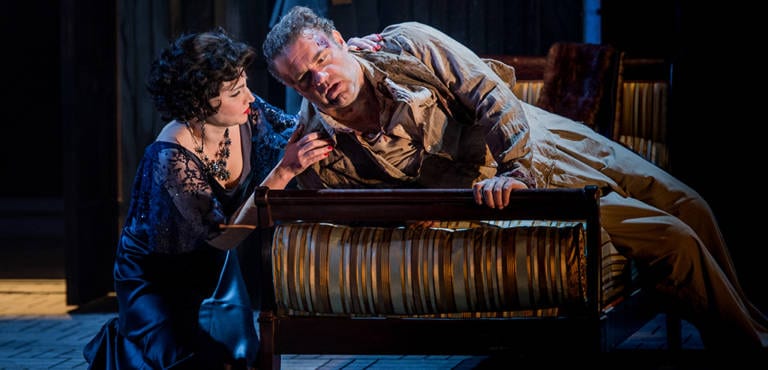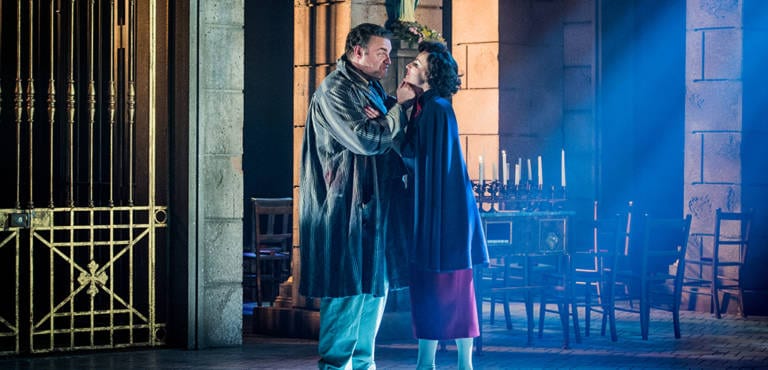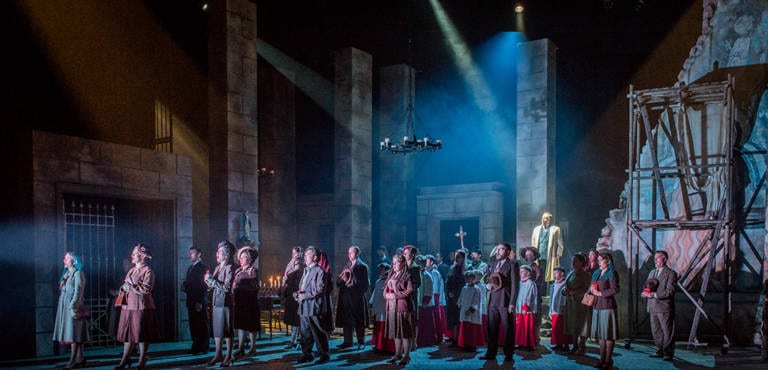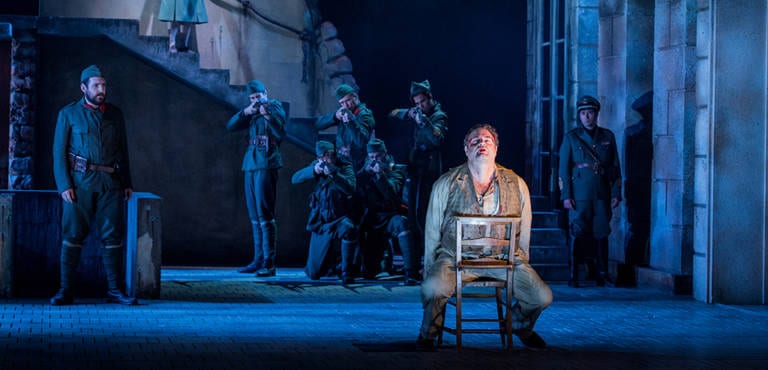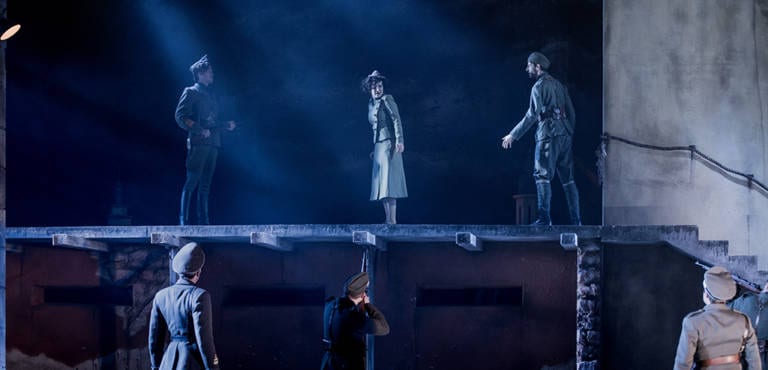Grange Park Opera has moved to Horsley in Surrey. A new opera house is being built in the grounds of West Horsley Place and, though the building is unfinished, the company is mounting its first season. One of the offerings is Tosca and they have managed to attract internationally renowned tenor Joseph Calleja to sing Cavaradossi. The setting is wonderful and, though it is very strange to be in a very obviously incomplete building with exposed girders showing, the production values are very high and the musical standards are superb.
Tosca tells the story of the diva Floria Tosca, her painter lover Mario Cavaradossi and Rome’s Chief of Police Baron Scarpia. Scarpia lusts after Tosca and, when he realises that Cavaradossi may be implicated in the escape of a political prisoner, he brings him in for questioning and places Tosca in the position of having to betray the escaped prisoner to save her lover from torture. Scarpia then condemns Cavaradossi to death and demands Tosca’s body as the price of sparing him. The ending of the opera is one of the great tragic set pieces that make Puccini supreme as the composer of operatic melodrama.
This version, crisply directed by Peter Relton, moves the action from Napoleonic times to fascist Italy – the military defeat that triggers Cavaradossi’s fatal outburst of “Vittoria” is a battle in Ethiopia. The costumes are from the 1940s and the soldiers are clearly from Mussolini’s army. The setting works brilliantly and the production looks just right – given the unfinished nature of the auditorium one can only applaud the priorities of moving spirit, Wasfi Kani, and her team. The director paints a convincing picture and the only lapse comes at the very end when Tosca’s escape from Scarpia’s thugs is entirely unconvincing.
Joseph Calleja revels in the relatively intimate spaces of the 900 seat auditorium. His Lucevan le stelle aria was everything one could want – the quiet high notes were a joy. His Tosca, Ekaterina Metlova, has a stunning voice and looks the part – but her acting is wooden and the moments of high drama lose some of their impact. Even so, the third Act’s brief unaccompanied duet with her lover is wonderful and shows what a fine voice she has. Roland Wood is a fine Scarpia – his entrance just before the Te Deum in Act 1 might be a little more chilling but the twisted pleasure that he obviously gets as he torments Tosca as she pleads for the life of her lover is brilliantly played.
Conductor Gianluca Marciano clearly knows his Puccini inside out and he gets some fine dramatic playing from the BBC concert orchestra. This is an excellent version of an old favourite and a really good ‘starter for ten’ at the Theatre in the Woods.


